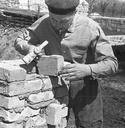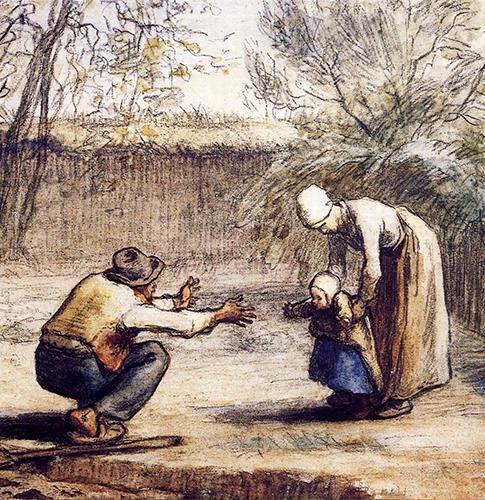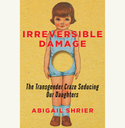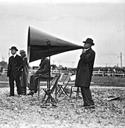United States Conference of Catholic Bishops,
Doctrinal Elements of a Curriculum Framework for the Development of Catechetical Materials for Young People of High School Age
(2008. Available at: www.usccb.org/about/evangelization-and-catechesis/... - 2011-08-09.).
In November of 2007 the United States Conference of Catholic Bishops unanimously approved a curriculum meant to introduce Catholic students to an intimate knowledge of Christ: Doctrinal Elements of a Curriculum Framework for the Development of Catechetical Materials for Young People of High School Age. This episcopal initiative affects over half a million students enrolled Catholic secondary education.[1] The introduction to the curriculum states three goals: First, it wishes to guide catechetical instruction for young people of high school age wherever and however it takes place: “in Catholic high schools, in parish religious education programs, with young people schooled at home, or within the context of the catechetical instruction which should be part of every youth ministry program.”[2] Second, it wishes to bring about national uniformity in catechetical instruction on the high school-age level, in view of the increasingly mobile character of modern society.[3] Such uniformity would mean chiefly a clearly articulated doctrinal content for high school age young people based on age and grade level. Third, and finally, the curriculum is designed to help those same young people “develop the necessary skills” to answer or address the “real questions that they face in life and in their Catholic faith.”[4] Put succinctly, the goal of the Doctrinal Elements is to educate all American students in Catholic doctrine so that they gain an intimate knowledge of Christ and build up the skills necessary to address real-life questions- all this, through national uniformity in a catechetical framework.
The curricular framework is rightly constructed with an emphasis on Christology. In many ways it begins to recover the rigor and beauty of Scholastic thought which was too often deemphasized in earlier programs of catechetical instruction built as they were upon amorphous concepts of religious experience or social justice. In centering the academic religious curriculum on the person of Jesus Christ, the bishops reorient American Catholic teachers and students toward the mystery of the Incarnation. What the bishops ask of teachers, in particular, is worth further comment: “Publishers and teachers or catechists are to strive to provide for a catechetical instruction and formation that is imbued with an apologetical approach.”[5] The document asks for Catholic doctrine to be presented in the following fashion: First-year students are introduced to Revelation through Scripture and Christ through formal study of the Old and New Testaments. As sophomores they encounter the Paschal Mystery and then ecclesiology. In the Junior year they are to study sacraments and Christian ethics. Finally, in their senior year, students may choose from five electives: a more intensive study of Scripture; a course on the social teaching of the Church; a semester on ecumenical and interreligious dialogue; Church history; or a discussion of vocations to marriage and the religious life.
If the strength of the bishops’ document on catechesis is its call for unity around a Christological center, what is perhaps left understated is the depth of the pedagogical challenge in the face of the contemporary culture when the document asks for an emphasis on apologetics. John Courtney Murray had anticipated the challenge faced by American Catholic teachers in Towards a Theology for the Layman when he wrote, “Our problem is to form Christian men strong enough to be plunged into the modern secularized milieu and confidently left to the inner resources of a mature faith that is able to stand by itself, supported by the strength of its own deeply experienced reality.”[6] If young women and men are to know doctrine, answer real life questions, and grow in communion with Christ, they must be educated in such a way that leaves faith strong and mature. The Doctrinal Framework is the beginning of a response to the radical secularization and religious indifferentism in which many contemporary Catholic students are immersed. Murray, writing in the middle of the last century, highlights the need in Catholic religious formation for the Doctrinal Framework. Specifically, John Courtney Murray crystallizes the challenge to which the curriculum is a response: “In this situation, our tactics should be clear. To a radical and total challenge, one must fling a radical and total answer. To a complete system of thought one must oppose another system of thought, even more unitary, coherent, articulated.” In this sense the Doctrinal Framework is a necessary and profound first step for Catholic education in this country. Teachers can and should offer our children a complete and coherent way of life that begins and ends in communion with Christ.
Luke O'Connell completed his licentiate in philosophy at the Catholic University of America. He is a doctoral candidate in liberal studies at Georgetown University and theology teacher at Georgetown Visitation Preparatory School.
[1] “Catholic Data, Catholic Statistics, Catholic Research.” CARA - Center for Applied Research in the Apostolate. Web. 23 October 2011. <http://cara.georgetown.edu/CARAServices/requestedc...
[2] Introduction. Doctrinal Elements of a Curriculum Framework for the Development of Catechetical Materials for Young People of High School Age. 2008. United States Conference of Catholic Bishops. www.usccb.org/about/evangelization-and-catechesis/... - 2011-08-09
[3] Ibid.
[4] Ibid.
[5] Ibid.
[6] John Courtney Murray, S.J. 1.“Toward a Theology for the Layman: The Pedagogical Problem,” Theological Studies5 (September 1944): 340‒76.
Luke O'Connell completed his licentiate in philosophy at the Catholic University of America. He is a doctoral candidate in liberal studies at Georgetown University and theology teacher at Georgetown Visitation Preparatory School.



